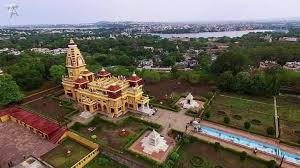Since the Taliban’s conquest of Kabul in August 2021, Pakistan has experienced an increase in terrorist attacks, particularly in Balochistan and Khyber Pakhtunkhwa districts bordering Afghanistan. In 2023, there were over 650 documented incidents, 23% of which occurred in Balochistan, Pakistan’s largest province and a hotspot of separatist violence.
Despite the new normal, Monday was one of the worst days for Balochistan and Pakistan.
Separatists launched synchronized strikes across the province on the 18th anniversary of the death of Baloch nationalist leader Nawab Akbar Bugti, who was slain by the Pakistani military in 2006. The Balochistan Liberation Army has claimed responsibility for numerous deaths.
Security officials claim that separatists caused infrastructure damage and executed Punjabi migrant laborers.
The strikes in several sections of Balochistan highlight the insurgency’s growing reach and capacity. Pakistan’s military and intelligence services were caught off guard on August 26, despite previous violent incidents on Bugti’s death anniversary.
Pakistan has traditionally taken a brutal, militaristic approach to the Baloch problem. Despite having abundant natural resources, Balochistan remains the poorest region in the country. Pakistan has traditionally neglected the province.
Punjab’s influence in national politics and economic prosperity has led to strong anti-Punjab sentiments among several Baloch communities. Separatists used harsh living conditions to gain support for their cause. The federal government is frequently criticized for “extracting” resources without providing assistance to local economies. Baloch rebels have identified the China-Pakistan Economic Corridor as an example of exploitation, specifically targeting Chinese interests.
The Pakistani establishment has not supported civil rights movements in Balochistan, including the Baloch Yakjehti Committee. The committee organized sit-ins in Islamabad and Baloch cities this year to highlight human rights violations in the province to federal authorities. Such activists were frequently portrayed as “enemies of Pakistan,” leaving the military with just one option: use action against the separatists. However, recent attacks show that state aggression has only empowered separatist forces.
To ensure stability and security in its largest province, Pakistan should address local development issues, cease human rights violations, and engage with nonviolent civil rights advocates to rebuild ties with the Baloch people.




